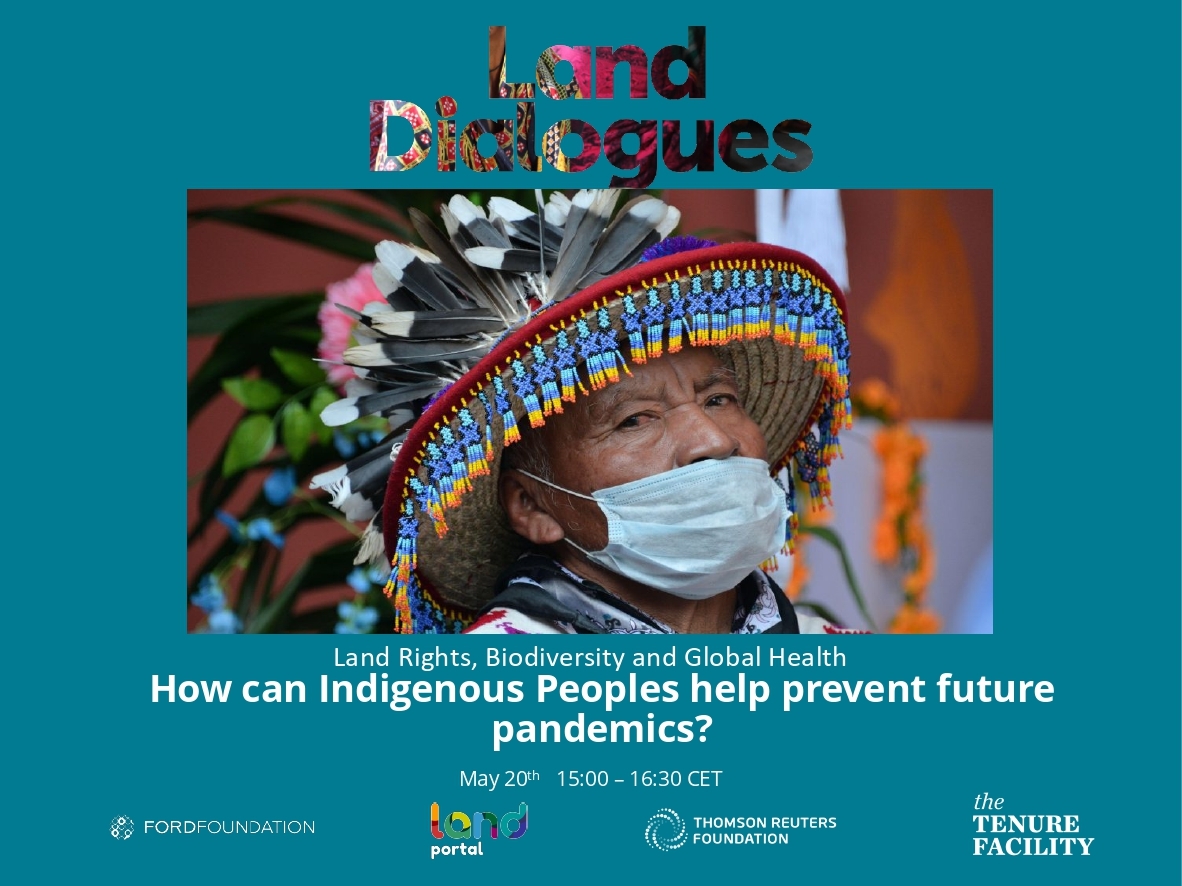The Ford Foundation, the Land Portal Foundation, the Tenure Facility and the Thomson Reuters Foundation launched a webinar on May 20th on the the link between “environmental imbalances” and “emerging infectious diseases". This is well established in literature; studies have shown that activities associated with deforestation, and subsequent biodiversity loss, contribute to the spread of disease vectors and associated diseases. Maintaining intact forest cover and preventing the associated consequences of deforestation, would reduce virus emergence events. There are many other good reasons to do it: forests store carbon, protect wildlife and sustain peoples' livelihoods.
The argument resides that protecting Indigenous Peoples and Local Communities land rights is key in preventing future zoonotic disease spillover as their lands have been found to have less intensive deforestation, higher biodiversity and less environmental degradation in comparison to forests under other management strategies. Studies have found that the health of tropical forests interconnects to global health, due to biodiversity protection and mitigating the consequences of global warming. The One Health initiative suggests “collaborative efforts of multiple disciplines working locally, nationally, and globally to attain optimal health for people, animals and our environment.” Put simply, if we protect the health of the Earth, animals and environment around us, we protect our own health.
The COVID-19 pandemic has shed light on the imbalance in ecosystems being driven by human activities, and the urgent need for us to take action for the future of all species, including mankind. This webinar aims to highlight the role of Indigenous People and Local Communities land rights in this crisis. Putting them at the front lines of decision making will be vital in collaborations towards global health. To do this, this webinar will highlight the support these communities need to continue their work protecting their territories.
This event was the second of a series of webinars organised under the “Land Dialogues” series, a Tenure Facility, Land Portal, Ford Foundation and Thomson Reuters Foundation initiative promoting the importance of recognizing legal ownership of Indigenous Peoples and local communities land rights as a prerequisite for achieving national and international goals for forest governance, food security, climate mitigation, economic development, and human rights.
Moderator
 Jonathan Watts
Jonathan Watts
Global Environment Editor
The Guardian
Panelists

Joji Carino
Forest Peoples
Programme

Carlos
Zambrana Torrelio
EcoHealth
Alliance

David Nabarro
World Health
Organization

Eric Fevre
Institute of Infection
Veterinary and
Ecological Sciences
University
of Liverpool

Francisco Piyako
leader of the
Indigenous
Ashaninka
people

Gladys Kalema
Zikusoka
Conservation
Through
Public Health

